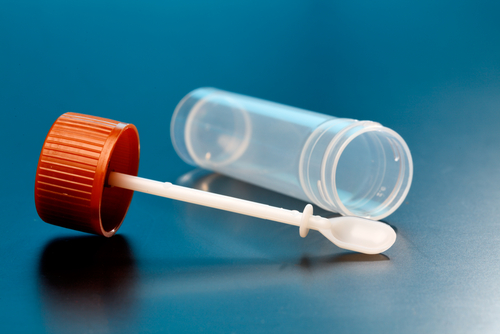 Fecal microbiota transplantation (FMT), the transfer of fecal bacteria from a healthy donor to a recipient, was the topic of several studies presented during Digestive Disease Week 2014 held in May. Tests on human patients discussed at the meeting cannot yet conclusively add FMT to clinicians’ toolbox of treating inflammatory bowel disease, but results suggest promise for the treatment.
Fecal microbiota transplantation (FMT), the transfer of fecal bacteria from a healthy donor to a recipient, was the topic of several studies presented during Digestive Disease Week 2014 held in May. Tests on human patients discussed at the meeting cannot yet conclusively add FMT to clinicians’ toolbox of treating inflammatory bowel disease, but results suggest promise for the treatment.
“Although we did not find a statistically significant effect of FMT in active ulcerative colitis, there is the possibility that FMT may be effective when administered longer than six weeks,” stated the presenter for the first randomized trial for FMT in inflammatory bowel disease patients. The trial was led by Paul Moayyedi, MBChB, PhD, MPH, acting director of the Farncombe Family Health Research Institute and director of the Division of Gastroenterology at McMaster University in Hamilton, Ontario, Canada.
Four of the 27 patients with mild to moderate ulcerative colitis who received an FMT enema achieved clinical remission (Mayo score of 2 or less and endoscopic Mayo score of 0), while two of the 26 patients who received a placebo enema achieved clinical remission. More patients experienced improvements than achieved remission, with seven FMT patients and eight placebo patients seeing improvements in their Mayo scores by 30% or more. All patients began the study with Mayo scores of 4 or more and endoscopic Mayo scores of 1 or greater.
No significant adverse effects were reported during the study. The researchers believe a treatment duration greater than that used in the study could have a larger impact. Indeed, five out of 16 patients who continued with six to 12 more weeks of FMT treatment after seeing subjective initial improvements achieved clinical remission.
Yet in a separate study that infused FMT colonoscopically once into seven ulcerative colitis patients, one patient experienced remission after one month. The patient’s Ulcerative Colitis Disease Activity Index (UCDAI) decreased from 8 to 2 and histologic inflammation was resolved, but the improvements were not maintained.
A similar story is true for Crohn’s disease patients, who are usually less responsive to FMT. Eight patients with active Crohn’s disease were infused colonoscopically for FMT. Five experienced clinical remission after four weeks, as measured by the Harvey-Bradshaw Index. C-reactive protein (CRP), a marker of inflammation, levels decreased, and short Inflammatory Bowel Disease Questionnaire scores improved. After eight and twelve weeks, four and two patients maintained remission, respectively.
“These preliminary results suggest FMT is safe and can induce early improvements in symptoms in patients with active [Crohn’s disease],” said the investigators. “Whether the improvements can be sustained, and whether they correlate with objective [endoscopic measures of inflammation, still need to be determined,” they told Gastroenterology & Endoscopy News.
Seemingly, adolescents with mild to moderate Crohn’s disease reap greater benefit. Seven of nine patients between 12 and 19 years of age who received a single FMT nasogastrically saw remission, defined by the Pediatric Crohn’s Disease Activity Index. However, two patients relapsed after six weeks, and five patients needed maintenance drug therapy.
According to Lawrence J. Brandt, MD, professor of medicine and surgery at Albert Einstein College of Medicine and emeritus chief of the Division of Gastroeneterology at Montefiore Medical Center, the different responses to FMT illustrate the need to refine treatment procedures and logistics. “These studies all show that FMT may have a therapeutic role in treating inflammatory bowel disease, but the precise patients for whom it is best suited and the best approach to administering it need to be further studied,” said Dr. Brant, reported by Gastroenterology & Endoscopy News.
Dr. Brandt treats Crohn’s patients, some of whom he has administered FMT. “The success of FMT in both Crohn’s disease and ulcerative colitis patients may have to do with disease characteristics, such as precipitating factors, genetics, age at onset, disease duration and severity, location of disease and perhaps the patient’s intestinal microbiota. It may be that we need to look at the patient’s unique bacterial composition and determine which organisms need to replaced, and formulate FMT accordingly,” concluded Dr. Brandt.

